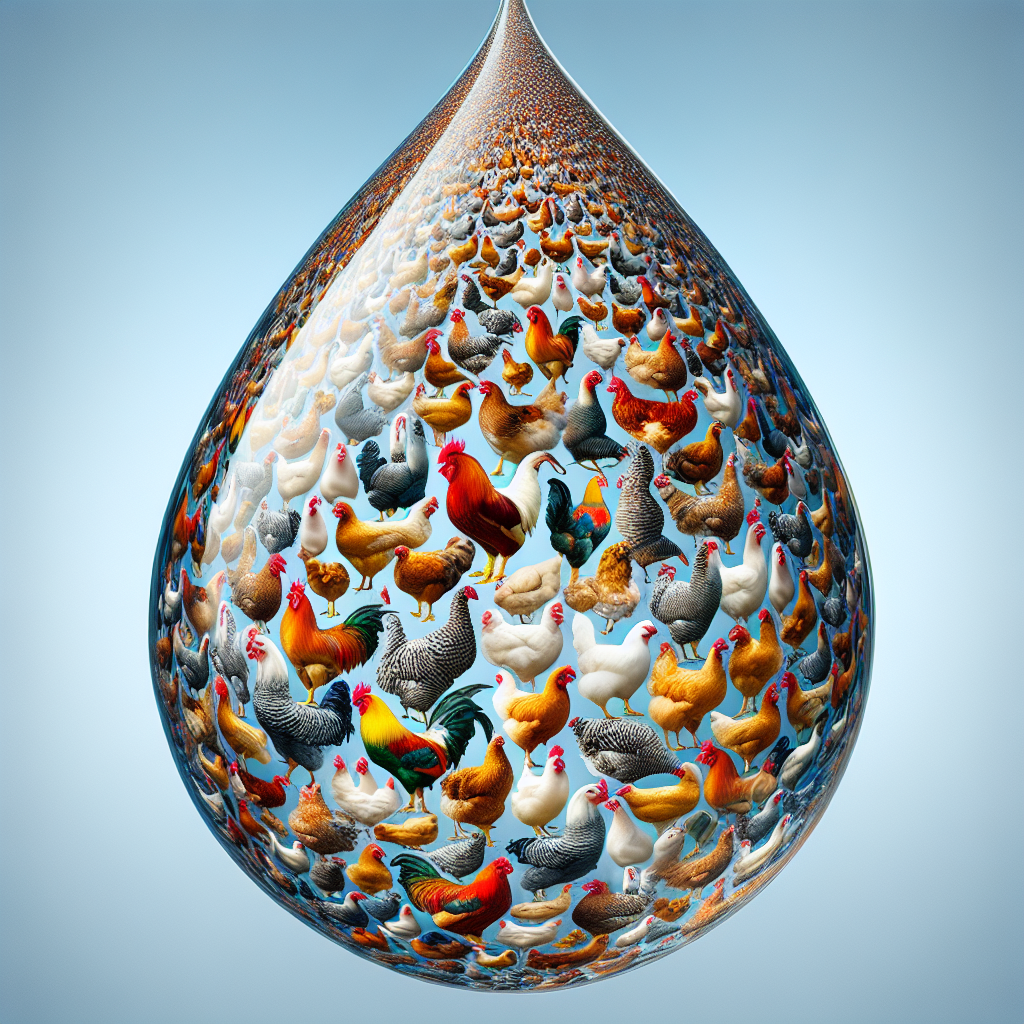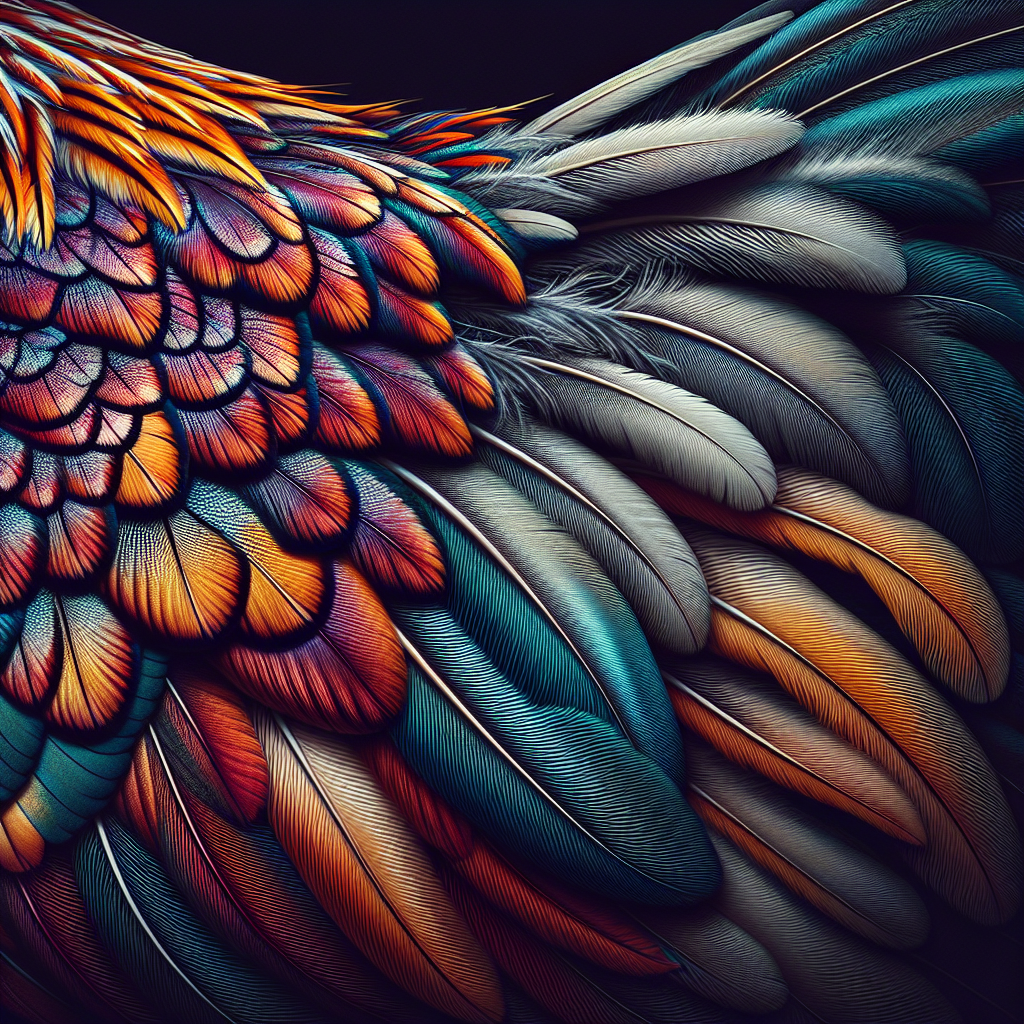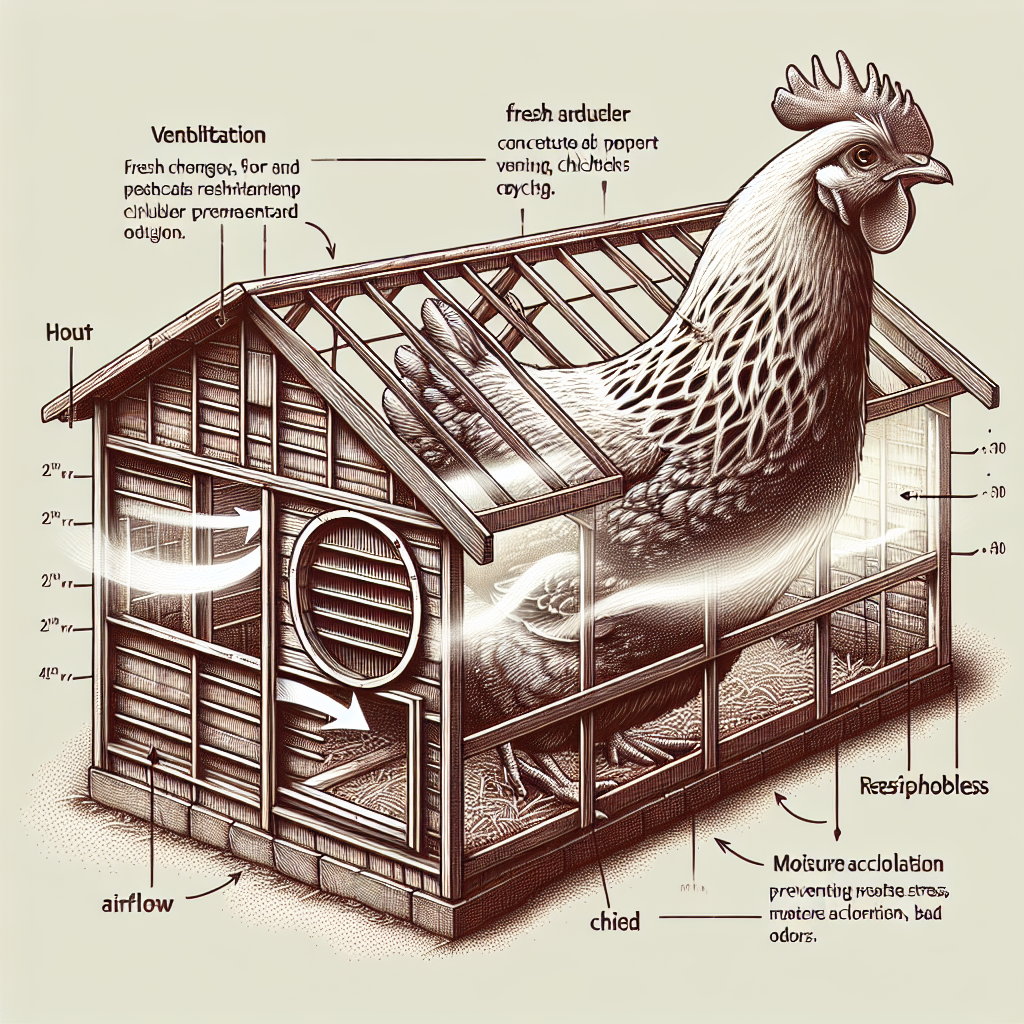In order to ensure the optimal health of your chickens, clean water plays a crucial role. Clean water is not just essential for their survival, but it also directly impacts their overall well-being. Providing clean water is a simple yet vital step in protecting your flock from diseases and ensuring their growth and productivity. So, let’s explore the significance of clean water in maintaining the health of your chickens and learn how it can contribute to a thriving and happy flock.
Maintaining Chicken Health
Introduces the concept of chicken health
When it comes to raising chickens, ensuring their health and well-being is of utmost importance. A crucial aspect of this is providing clean water for your feathered friends. Clean water plays a vital role in maintaining the overall health and vitality of chickens. By understanding the consequences of contaminated water, the importance of water as a vital nutrient, the role of clean water in disease prevention, and the various water sources and quality, you can take the necessary steps to ensure that your chickens have access to clean and safe water.
The Consequences of Contaminated Water
Highlights the negative effects of contaminated water on chicken health
Contaminated water can have detrimental effects on the health of chickens, impacting their growth, digestion, and immune system. When chickens consume water that is contaminated with harmful bacteria and pathogens, it can lead to various health issues and reduced performance.
Impact on digestion and nutrient absorption
Contaminated water can disrupt the digestive system of chickens, leading to poor nutrient absorption. This can result in stunted growth, reduced egg production, and overall poor health. When chickens are unable to properly digest and absorb nutrients, they become more vulnerable to diseases and infections.
Increased vulnerability to diseases
One of the significant consequences of contaminated water is the increased vulnerability of chickens to diseases. Pathogens and harmful bacteria present in contaminated water can enter the chickens’ bodies, causing infections and illnesses. This not only poses a threat to the affected birds but also increases the risk of the disease spreading to the entire flock.
Reduced immune system function
Drinking contaminated water can weaken the chickens’ immune system, making them more susceptible to various diseases. A compromised immune system not only affects the individual chicken’s health but also puts the entire flock at a higher risk of experiencing disease outbreaks. Clean water is vital for maintaining a robust immune system in chickens, ensuring their ability to fight off infections and stay healthy.
Water as a Vital Nutrient
Explains the importance of water as a nutrient for chickens
Water is an essential nutrient for chickens, just like proteins, carbohydrates, and fats. Without an adequate and clean water supply, chickens cannot thrive or survive. Water makes up a significant percentage of a chicken’s body weight, with about 75% of a newly hatched chick and 65% of an adult chicken being composed of water. It is involved in various bodily functions and is essential for maintaining homeostasis.
Water’s role in various bodily functions
Water plays a crucial role in many bodily functions of chickens. It helps regulate body temperature, aids in digestion, nutrient absorption, and elimination of waste products. It also lubricates joints, transports nutrients and oxygen throughout the body, and supports healthy organ function. Without enough water, these vital processes can be disrupted, leading to a host of health issues.
Hydration and its impact on overall health
Proper hydration is directly linked to the overall health and well-being of chickens. When chickens are adequately hydrated, their bodily functions can operate optimally, promoting healthy growth, efficient nutrient absorption, and effective immune system function. Water also helps maintain the balance of electrolytes in the chicken’s body, ensuring proper muscle function and nerve transmission.
Disease Prevention through Clean Water
How clean water helps in preventing diseases
Clean water plays a crucial role in preventing the spread of diseases among chickens. By providing chickens with clean, uncontaminated water, the risk of pathogens and harmful bacteria being transmitted through the water supply is significantly reduced. This helps create a healthier environment for the chickens and decreases the likelihood of disease outbreaks.
Reduces the presence of pathogens and harmful bacteria
Clean water reduces the presence of pathogens and harmful bacteria that can cause diseases in chickens. By ensuring that the water supply is free from contaminants, you minimize the risk of infections and improve the overall health of your flock.
Prevents the transmission of waterborne diseases
Waterborne diseases can easily spread through contaminated water sources. By providing clean water, you can prevent the transmission of diseases through the water supply. This is especially important in situations where chickens are housed together in close quarters, increasing the risk of disease transmission.
Enhances chicken’s ability to fight off infections
Clean water supports the immune system of chickens, enhancing their ability to fight off infections. When chickens are hydrated with clean water, their immune response is strengthened, helping them ward off diseases more effectively. A healthy immune system is the first line of defense against pathogens and plays a critical role in maintaining chicken health.
Water Source and Quality
Types of water sources for chickens
There are several types of water sources that can be utilized for chickens:
Tap water
Tap water from a municipal source can be a convenient and readily available option for providing chickens with water. It is essential to ensure that the tap water source is safe and free from contaminants that could harm the chickens.
Well water
Well water is another commonly used source of water for chickens. However, it is crucial to regularly test well water to ensure that it is safe and free from contaminants. Well water quality can vary, so testing for bacteria, chemical pollutants, and other harmful substances is essential.
Rainwater
Rainwater can be a natural and cost-effective alternative for providing water to chickens. Rainwater collection systems can be set up to capture and store rainwater for later use. However, it is essential to consider the quality of the captured rainwater and implement appropriate filtration or treatment methods to ensure its cleanliness.
Importance of testing water quality
Testing the quality of the water source is crucial to ensure that it is safe and suitable for chicken consumption. Water contaminants such as bacteria, heavy metals, pesticides, and nitrates can negatively impact the health of chickens. Regular testing helps identify any potential issues and allows necessary steps to be taken to ensure clean water for the flock.
Common contaminants and their impact
Common contaminants found in water sources include bacteria, viruses, parasites, heavy metals, chemical pollutants, and excess minerals. These contaminants can have various adverse effects on chickens, ranging from digestive disturbances and organ damage to impaired immune function and reduced overall health.
Methods for ensuring clean water
Ensuring clean water for chickens can be achieved through various methods, including filtration, treatment, and regular maintenance. Filtration systems can remove impurities and contaminants, while treatment methods such as chlorination, UV sterilization, and ozonation can kill harmful bacteria and pathogens. Regular maintenance of waterers, cleaning, and disinfection also helps maintain the cleanliness of the water supply.
Providing Sufficient Water Supply
Determining adequate water intake for chickens
Understanding the water requirements of chickens is crucial for providing them with a sufficient water supply. On average, a chicken consumes between 200 to 500 milliliters of water per day, depending on various factors such as age, size, weather conditions, and activity level. It is important to monitor water consumption and ensure that the flock has access to an adequate supply of clean water at all times.
Factors affecting water consumption
Several factors can affect a chicken’s water consumption. High temperatures, increased physical activity, and the presence of additional feed additives can all lead to an increased demand for water. It is essential to consider these factors when providing a sufficient water supply to meet the needs of the flock adequately.
Proper waterer placement and accessibility
The placement of waterers plays a crucial role in ensuring that all chickens have easy access to clean water. Waterers should be positioned at an appropriate height to allow chickens to drink comfortably without bending or straining. It is also important to have multiple waterers available to avoid overcrowding and allow all chickens equal access to water.
Importance of regular water checks
Regularly checking the water supply is essential for maintaining chicken health. Monitoring water quality, ensuring proper waterer functionality, and regularly cleaning and disinfecting waterers are all necessary steps in providing a clean and sufficient water supply to the flock. Regular checks help identify any issues or potential contaminants, allowing prompt action to be taken.
Watering Systems and Maintenance
Different types of watering systems
There are various types of watering systems that can be used for chickens, each with its advantages and considerations.
Standard waterers
Standard waterers are commonly used and come in the form of open troughs or bowls. They are easy to maintain and provide chickens with easy access to water. However, they can be prone to contamination and spillage, requiring regular cleaning and monitoring.
Nipple waterers
Nipple waterers deliver water through small metal or plastic nipples that chickens can activate by pecking. This system helps minimize contamination and spillage, ensuring cleaner water for the flock. Regular maintenance, such as checking for blockages and leaks, is necessary to ensure proper functionality.
Cup waterers
Cup waterers are similar to nipple waterers but feature small cups that automatically refill when chickens drink from them. These waterers provide a constant supply of fresh water and are relatively low maintenance.
Best practices for waterer maintenance
Maintaining clean and functional waterers is essential for ensuring a reliable water supply for your chickens. Regular cleaning and disinfection of waterers help minimize the risk of contamination and keep the water fresh. It is important to follow manufacturer guidelines for maintenance, including checking for leaks, blockages, and regularly replacing worn-out parts.
Cleaning frequency and disinfection
The frequency of cleaning waterers depends on several factors such as the type of waterer, weather conditions, and the number of chickens. As a general guideline, waterers should be cleaned and disinfected at least once a week, or more frequently if necessary. This helps prevent the growth of bacteria and keeps the water supply clean and safe for consumption.
Temperature and Water Consumption
Effect of temperature on chicken’s water intake
Temperature plays a significant role in a chicken’s water intake. During hot weather, chickens tend to consume more water to help regulate their body temperature and prevent heat stress. In contrast, during cold weather, chickens may consume less water. Understanding these temperature-related changes in water consumption is essential in managing the flock’s hydration needs.
Heat stress and increased water needs
Heat stress can be a serious concern for chickens, especially during hot summer months. When chickens are exposed to high temperatures, their water needs increase significantly. Providing an abundant supply of clean water during hot periods is crucial for preventing heat stress and maintaining optimal health.
Strategies for managing water consumption during extreme temperatures
To manage water consumption during extreme temperatures, it is important to take certain measures. Adding ice cubes or frozen water bottles to the waterers can help keep the water cool and encourage chickens to drink more. Providing shade and ensuring good ventilation in the coop also help mitigate the effects of extreme temperatures on chickens.
Signs of dehydration in chickens
It is important to be vigilant for signs of dehydration in chickens. Some common signs include decreased egg production, reduced appetite, dry and discolored comb, lethargy, sunken eyes, and thickened saliva. If any of these signs are observed, it is crucial to increase water availability and seek veterinary attention if necessary.
Water Additives and Medications
Understanding the use of water additives
Water additives can be used to supplement chickens’ water with essential nutrients, improve digestion, and administer medications effectively. However, it is important to exercise caution and follow recommended dosage guidelines when using water additives.
Electrolytes and vitamins
Electrolytes and vitamins can be added to the water to provide chickens with essential nutrients, especially during times of stress or illness. These additives help replenish electrolyte balance, support immune function, and promote overall health. It is crucial to use commercially available and approved products and follow dosage guidelines to avoid over-supplementation.
Probiotics and digestive health
Probiotics can be added to the water to promote a healthy gut flora and enhance digestive health in chickens. These beneficial bacteria help maintain a balanced digestive system, improve nutrient absorption, and protect against harmful pathogens. Care should be taken to select appropriate probiotic strains and follow dosage instructions for optimal results.
Medications via water administration
Administering medications via water is a common method for treating certain illnesses in chickens. Water-soluble antibiotics, for example, can be added to the water to treat bacterial infections. Ventilation and cleanliness of the water supply should be closely monitored during medication administration to ensure chickens consume the required dosage and prevent the development of antibiotic resistance.
Considerations and dosage guidelines
When using water additives and medications, it is important to consider factors such as the age, size, and condition of the chickens, as well as any interactions with other substances. Following dosage guidelines provided by the manufacturer or consulting with a veterinarian is crucial to avoid under or over-dosage, which can be detrimental to chicken health.
Educating Poultry Farmers on Clean Water Practices
Importance of awareness and education
It is essential to educate poultry farmers on the importance of clean water practices. With proper awareness and education, farmers can understand the impact of contaminated water on chicken health and take the necessary steps to provide clean and safe water to their flocks.
Training on proper water management
Providing training on proper water management practices can greatly benefit poultry farmers. This includes educating farmers on water sources, quality testing, waterer maintenance, and strategies for disease prevention through clean water. By empowering farmers with knowledge and skills, they can effectively implement good water management practices on their farms.
Resources and organizations assisting farmers
Numerous resources and organizations exist to support poultry farmers in maintaining clean water practices. These resources provide guidance on water quality testing, water treatment methods, waterer maintenance tips, and disease prevention strategies. Collaborating and seeking assistance from these organizations can help poultry farmers navigate the complexities of maintaining clean water for their flocks.
Promotion of good sanitation practices
Promoting good sanitation practices is crucial in maintaining clean water for chickens. This includes regularly cleaning and disinfecting waterers, preventing fecal contamination of water sources, and implementing proper waste management techniques. By emphasizing the importance of good sanitation practices, poultry farmers can create a healthier environment for their chickens and reduce the risk of disease transmission.
In conclusion, clean water is vital for maintaining chicken health. Contaminated water can have negative consequences, impacting digestion, nutrient absorption, immune system function, and increasing vulnerability to diseases. Water is a vital nutrient for chickens, playing a role in various bodily functions and overall hydration. Clean water helps prevent diseases by reducing pathogens and enabling chickens to fight off infections. The water source and quality should be regularly tested and monitored to ensure that it is safe for consumption. Providing a sufficient water supply involves determining adequate water intake, proper waterer placement, and regular water checks. Different watering systems are available, each requiring specific maintenance practices. Temperature affects water consumption, especially during extreme weather conditions. Water additives and medications can be used but should be administered with caution and following recommended guidelines. Educating poultry farmers on clean water practices, providing training and resources, and promoting good sanitation practices are vital in ensuring the health and well-being of chickens. By prioritizing clean water, poultry farmers can maintain healthy flocks and promote optimal growth and production.




